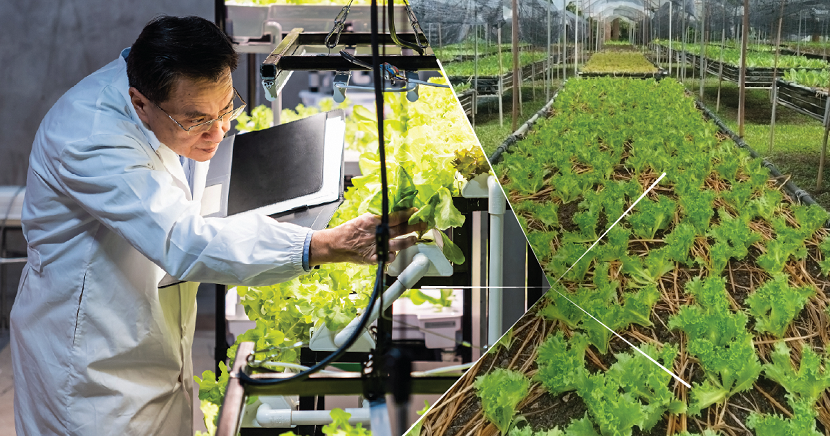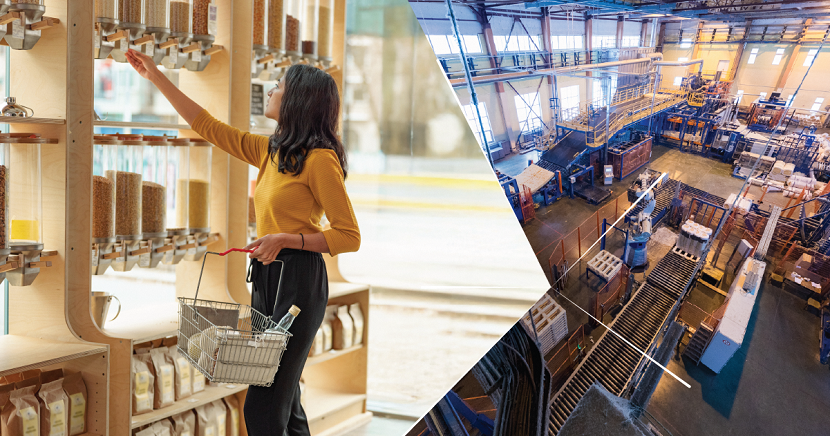: Scale smart: Increase capacity while reducing costs with Twinning Operations in the JS-SEZ

From manufacturing curry puffs in Singapore to serving the region with its new facility in Setia Business Park, Old Chang Kee’s strategic expansion into Johor shows how the Johor-Singapore Special Economic Zone (JS-SEZ) is re-writing the playbook for regional expansion.
Gone are the days where companies simply relocate their operations to benefit from cost advantages. Today, companies are increasingly “twinning” by establishing complementary operations across both locations to strengthen capabilities and expand market reach.
Old Chang Kee’s facility in Johor demonstrates how this can be done. The company is reimagining the traditional concept of cross-border business operations. By adopting the twinning model, Old Chang Kee has gone beyond its Singapore-centric network of 80 retail outlets to establish complementary capabilities in Johor. Its new facility increases production capacity while enabling R&D for products tailored for the Malaysian market. This dual setup allows the company to serve customers in Johor through outlets in KSL City Mall and Johor Bahru City Centre, while strengthening its manufacturing base for future growth. This example shows how consumer brands can use the JS-SEZ to manage costs, test new markets, refine products, and build scale across borders.
Twinning: A strategic move that goes beyond traditional relocation
Traditional relocation typically entails having to sacrifice one location’s strategic benefits for cost savings. Twinning operations allow companies to optimise both simultaneously.
As a designated economic zone in southern Johor, the JS-SEZ is conveniently located to enable Singapore-based companies to reap this benefit in close proximity. Spanning over 3,500 km² across nine flagship zones in southern Johor—including Iskandar Malaysia and Pengerang—it enhances cross-border connectivity, facilitates movement of people, and strengthens the business ecosystem across 11 key sectors.
The true draw of the JS-SEZ lies in its ability to foster an integrated ecosystem where businesses can operate across borders while building new capabilities. This integration is transforming how companies approach their regional expansion strategies and operational models.
Multiplying the innovation impact

Singapore company, Olam Food Ingredients (ofi) shows how companies can tap market strengths across both locations to accelerate innovation. The company has created a cross-border innovation engine that's transformed them from traditional ingredient supplier into a market-leading solutions provider. They did this by establishing their Customer Solutions Centre in Singapore for market insights while setting up an advanced production facility and Ingredient Excellence Centre (IEC) in Johor. The IEC laboratory uses the insights developed in Singapore’s Customer Solutions Centre to bring new ideas to life, allowing ofi to develop and customise solutions for beverages, bakery, and frozen dairy desserts.
ofi’s cross-border approach has been successful, with ofi expanding its Customer Solutions Centre network globally while maintaining Singapore as its Asia regional hub.
"When combined with our research and development experts at the Singapore Customer Solutions Centre, our global network of innovation centres and ofi's wider portfolio of ingredients such as coffee and cocoa, we can now offer customers in the region even more exciting innovation-led opportunities," said Sandeep Jain, Managing Director and CEO, Dairy, at ofi.
The model is gaining traction. In 2024, Singapore company Archisen partnered with FarmByte (a subsidiary of Malaysian state-owned Johor Corporation) to build a 52,000-square-foot indoor vertical farm. The facility, designed to produce over 306,000 kg of premium leafy vegetables annually, combines Archisen’s expertise in farm technology and installation with FarmByte’s local market knowledge and agricultural capabilities.
This isn't just about operational efficiency. Pairing Singapore's strengths in technology and innovation with Johor’s resources, market access, and cost advantages creates sustainable solutions that drive regional growth and deliver a competitive advantage that is amplified across borders.
Transform operations to double your capabilities

Singapore companies can also benefit from siting different parts of their operations in Singapore and Johor. One such example is SP Manufacturing, an Electronics Manufacturing Services (EMS) company serving various sectors like automotive, aerospace, industrial machinery, and medical devices. In December 2024, SP Manufacturing expanded its capabilities by establishing a smart manufacturing facility in Senai, Johor. The facility combines rapid prototyping, automated optical inspection, and precision assembly, with digitally linked ERP and quality management systems. With the setup in Johor, its Singapore operations can take on more sophisticated, higher volume contracts.
Seizing regional market opportunities through the JS-SEZ

For some companies, twinning in the JS-SEZ extends beyond Johor and Singapore operations to access wider opportunities in the region.
Agrocorp International, a Singapore-headquartered agri-commodity firm, partnered with Japanese dairy giant Megmilk Snow Brand in a RM300 million joint venture to establish a new protein extraction facility in Johor. Once operational by 2026, the facility will produce 6,000 metric tonnes of plant protein annually. This investment anchors a sustainable food manufacturing hub in Asia while positioning Agrocorp to meet the fast-growing demand Asian demand for plant-based food.
Equalbase, Singapore-based developer of sustainable warehouses and data centres, is taking a similar approach in the logistics sector. Building on its experience in Penang and Johor serving major multinational clients like BMW and Volkswagen, the company has partnered with Malaysia's Sunway Group to develop Equalbase Sunway 103°, a 55-hectare carbon-neutral logistics hub in Medini, Johor. Located just 5 kilometres from the Second Link to Singapore, the hub will serve industries from e-commerce to pharmaceuticals across Southeast Asia.
Dedicated support for cross-border growth
Supporting these business transformations is a support system designed to make cross border growth seamless.
The JS-SEZ Joint Project Office, established by Singapore's Ministry of Trade and Industry, Enterprise Singapore and the Economic Development Board, provides guidance for companies exploring opportunities in the JS-SEZ. In Malaysia, the Invest Malaysia Facilitation Centre – Johor (IMFC-J) serves as a one-stop centre that complements the JS-SEZ Joint Project Office by offering priority processing for permits and approvals to companies.
Beyond advisory services, companies can access financial support schemes including the Market Readiness Assistance (MRA) Grant for market promotion and business set-up costs, and the Enterprise Financing Scheme (EFS) for working capital and fixed assets loans. For joint ventures, the Malaysia-Singapore Third Country Business Development Fund (MSBDF) supports joint business missions and pilot projects. Industry associations such as the Singapore Business Federation and Singapore Manufacturing Federation (SMF) complement these with sector-specific advisory services.

